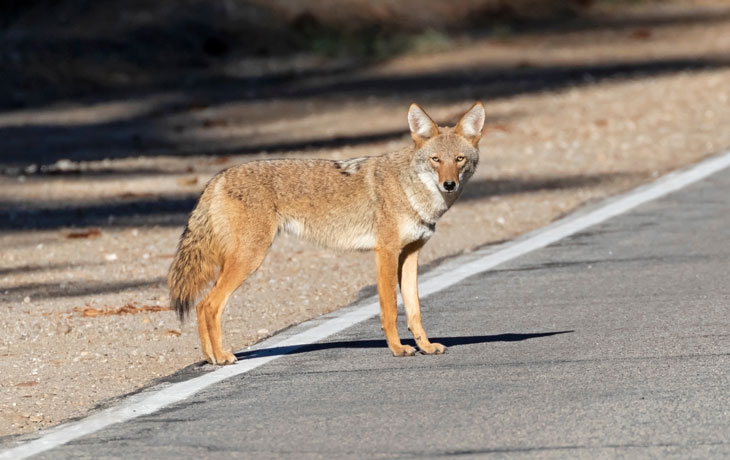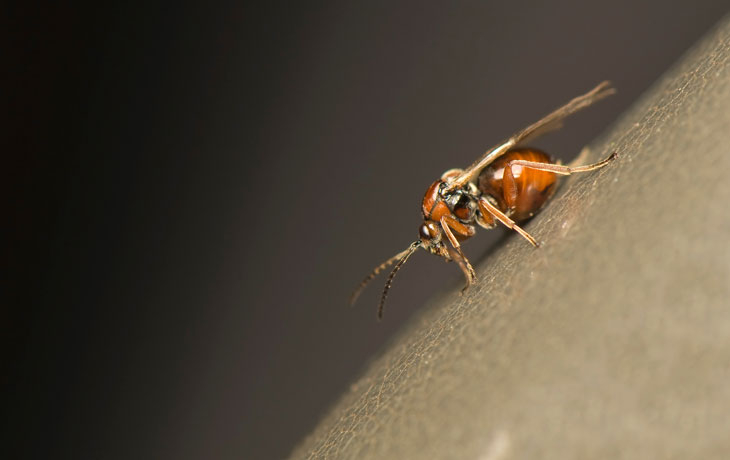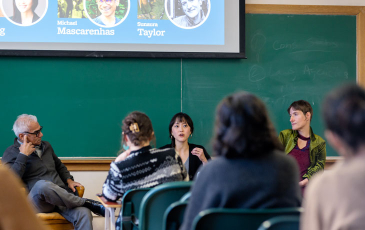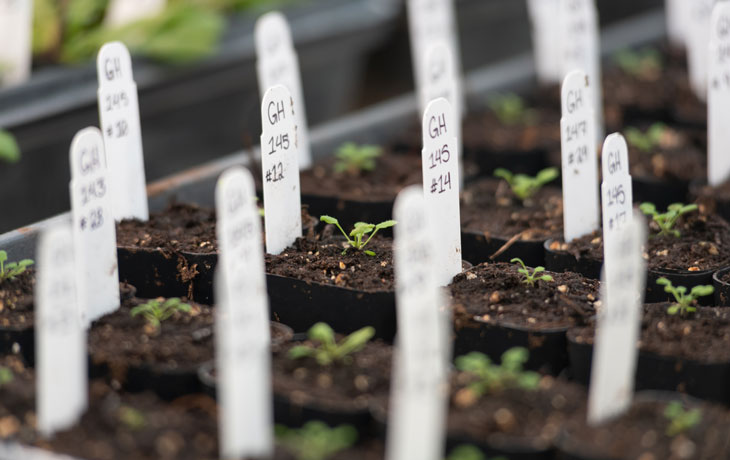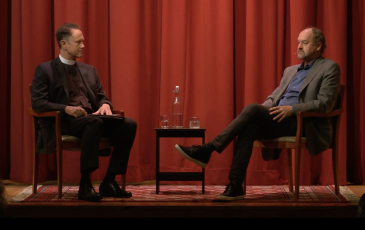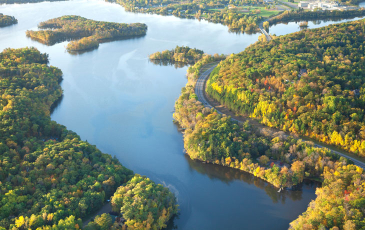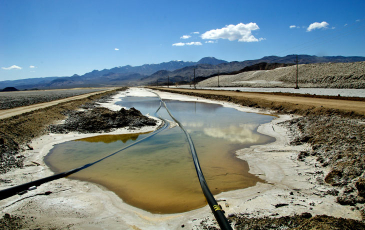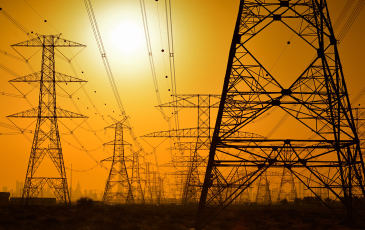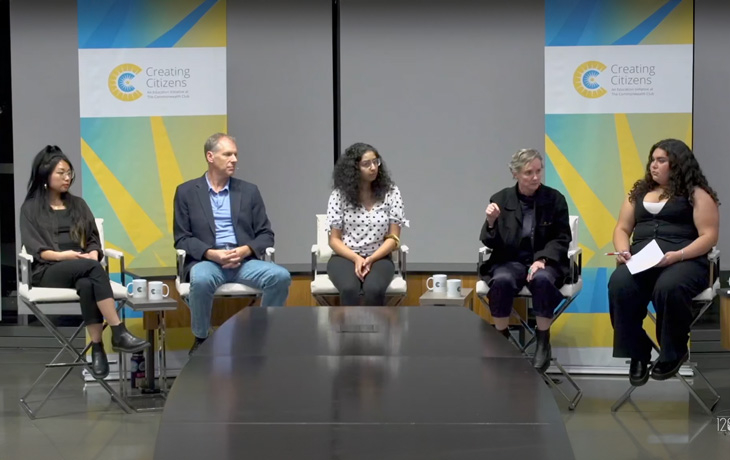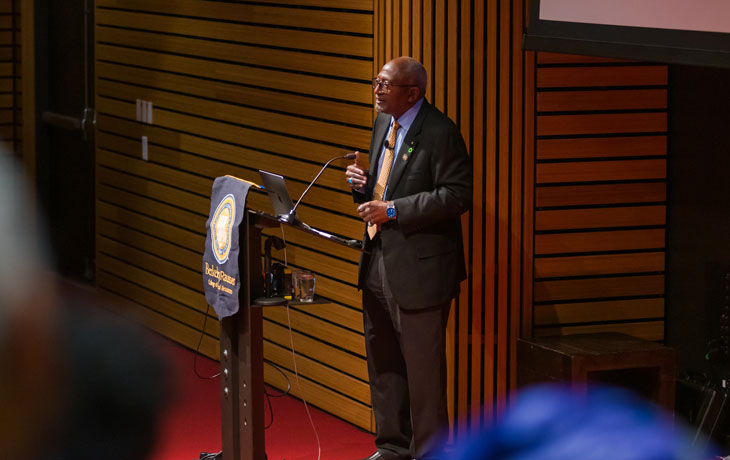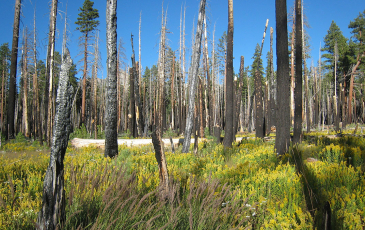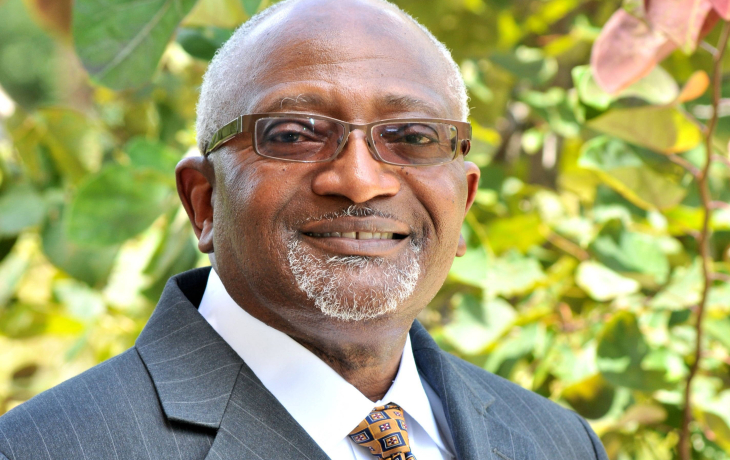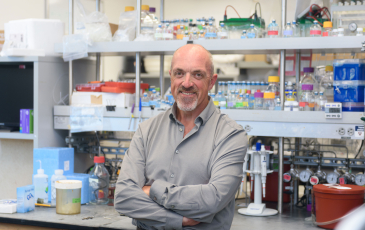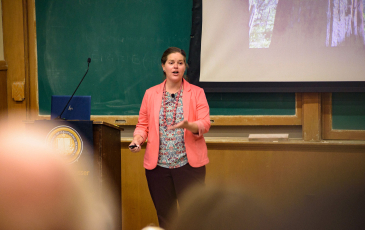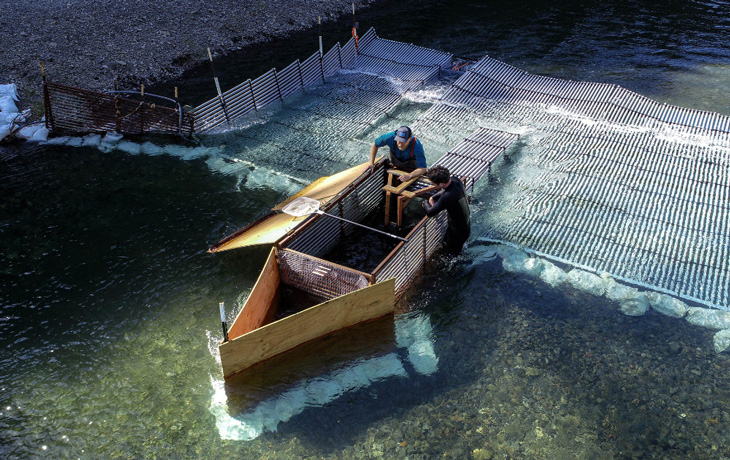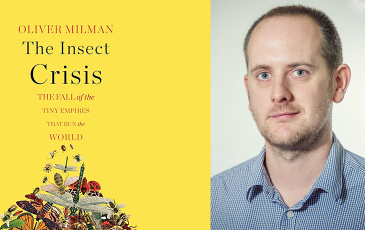Professor Christopher Schell and alum Christine Wilkinson, PhD '21, spoke to KQED about the role coyotes play in California ecosystems, and how can best coexist.
Costa Rica’s rainforests offer a window—and warning
Professor Todd Dawson is part of a collaborative team studying how climate change could reshape forest ecosystems in Costa Rica and around the world.
What wasps can teach us about engineering plants
Professor Patrick Shih and graduate student Kasey Markel’s studies of how Cynipid wasps reprogram oak trees may hold clues to new methods of engineering plants.
Spring 2024 ESPM faculty book panel
ESPM Professors Sunaura Taylor, Youjin Chung, and Michael Mascarenhas discussed their latest books with Rachel Morello-Frosch earlier this semester.
Advancing scientific understanding of calcium signaling
Recent studies led by Plant and Microbial Biology professor Sheng Luan shed light on the role calcium plays in plant immunity and defense.
Understanding the velocity of climate change
Dean David Ackerly recently spoke before the congregation of San Francisco’s Grace Cathedral about climate change and our changing world.
Mapping waters of the U.S. using new tools
ARE PhD candidate Simon Greenhill and alum Hannah Druckenmiller, PhD '21 ARE, speak with Resources for the Future about their work using machine learning to predict Clean Water Act regulation.
Karine Gibbs on microbiology and mentorship
The PMB professor and former Packard Fellow speaks about her research on complex bacterial behavior and encouraging scientists to bring their authentic selves to work
Renewable energy efforts in Nevada could be a double-edged sword
ESPM and ERG professor Meg Mills-Novoa spoke to Nevada Public Radio about her research on water scarcity and decarbonization across the Great Basin.
Vernard Lewis’ message for the future
The professor emeritus of Cooperative Extension spoke to KTVU about his career and longtime efforts to inspire youth to pursue a science education.
Historic PG&E rate increases will hit hard in 2024
Agricultural and Resource Economics professor Meredith Fowlie spoke to KQED about what Pacific Gas and Electric's latest rate increase could hold for customers and the utility.
Influencing the next generation of climate leaders
UC Berkeley environmental leaders offer stories and insights from working at the intersection of climate and politics.
The quest for environmental and climate justice with Dr. Robert Bullard
Bullard spoke about dismantling systemic racism and policies and practices that create, exacerbate, and perpetuate inequality and vulnerability during the Fall 2023 Albright Lecture.
Origins and innovations of science in the U.S. National Parks
Writer Jerry Emory and National Park Service scientist Alison Forrestel delivered the 2023 A. Starker Leopold Lecture in September.
How wildfires have remade the Illilouette Creek Basin
A decades-long experiment in Yosemite involving wildfires is showing researchers what a healthy forest should look like.
The Quest for Environmental and Climate Justice
Professor Bullard’s presentation will focus primarily on the U.S. and the need for empowering vulnerable populations, identifying environmental justice and climate change “hot-spot” zones and designing fair, just and effective adaptation, mitigation, emergency management and community resilience and disaster recovery strategies.
Microbes to the rescue with John Coates
Coates, a professor in PMB and director of the Energy and Biosciences Institute, spoke to the American Society for Microbiology about his research in applied and environmental microbiology.
Berkeley Talks: Jessica Morse on how we can live with fire
Morse, who serves as California's Deputy Secretary for Forest and Wildland Resilience, spoke about how the state is working to prevent catastrophic wildfires during last fall's S.J. Hall Lecture.
Managing the Eel River’s pikeminnow problem
A new project overseen by research scientist Gabe Rossi and postdoctoral researcher Phil Georgakakos could contribute to salmonid recovery in northern California.
The Insect Crisis is a Human Crisis
Insects can seem to be everywhere, all at once, sometimes to an annoying extent. Three out of four every four known animal species on Earth are insects, after all. But these dazzlingly adept creatures, which pre-date the dinosaurs, are suffering a silent yet hugely consequential crisis, with their numbers plummeting around the world. Oliver Milman, environment correspondent for Guardian US, has outlined the ramifications of this loss in his book The Insect Crisis: The Fall of the Tiny Empires that Run the World.


